The Ones That Got Away
21 authors who’ve settled down in the sunny Mediterranean—and you can too!
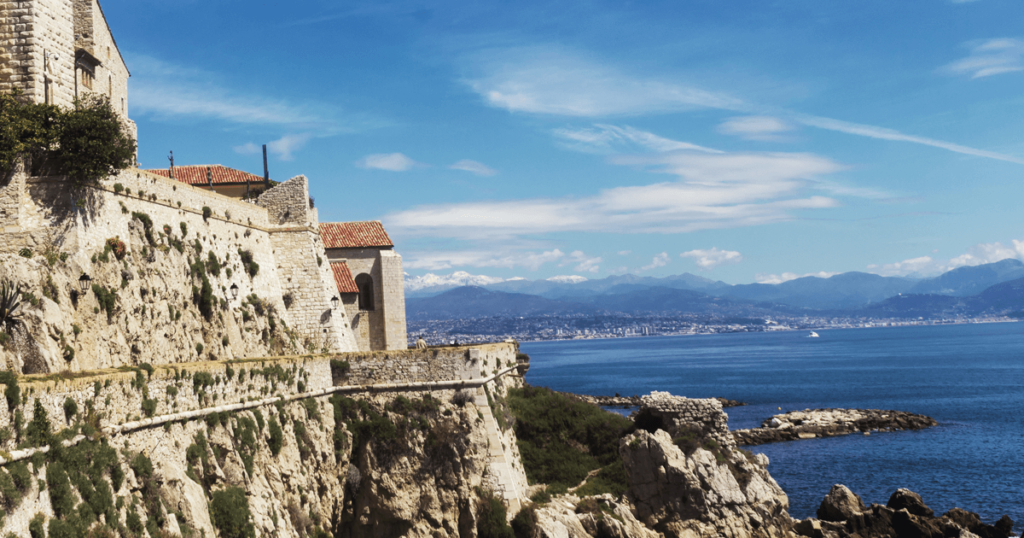
Armchair traveling begins in earnest now that winter has arrived. The pleasures, alas, are short-lived. Open a book set in some sunny clime, and you forget for a while about the frozen world outside. A few hours later, you’re back to lumpy sweaters and drafty bedrooms. A few savvy writers, however, really have done what we readers only dream of: they moved the armchair to an exotic location. Permanently.
There’s no better place to seek inspiration than the Mediterranean, with enough history, sunshine, water, and wine to make even the most etiolated writer feel flush. The SCHOLAR’s editors have compiled a list—starting in Greece and moving counterclockwise—of authors who’ve lived and written near the sea, as well as those writers from the region who have returned home after a spell away. There was a fair share of Google Maps stalking involved, and we’re now prepared to relocate and rename the magazine lo Studioso Mediterraneo.
Greece
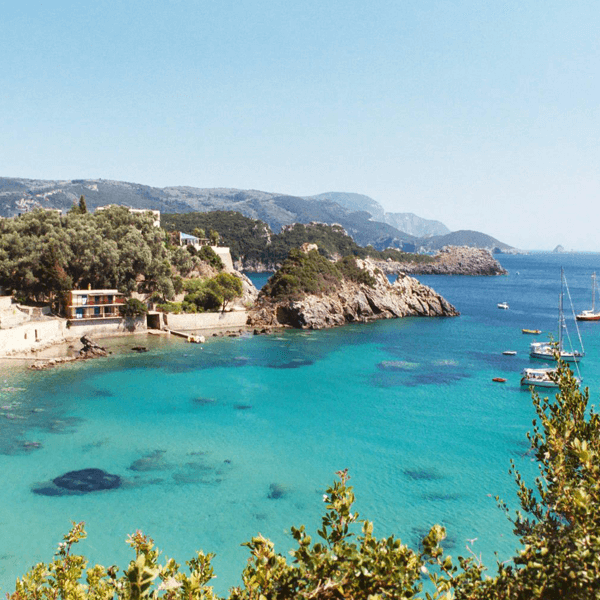
(Michael Gleave/Flickr)
Where else to write deathless prose than dazzling Corfu? That’s the argument Larry Durrell makes to his mother one cold summer’s day in 1935 England. Years before he would write The Alexandria Quartet, Larry leads his family south in search of a dilapidated pink villa on a dusty road. Gerry Durrell (both brothers will adopt their formal Christian names, Lawrence and Gerald, later) chronicles the family’s mayhem and mishaps with unparalleled British wit in his enchanting trilogy, beginning with My Family and Other Animals.
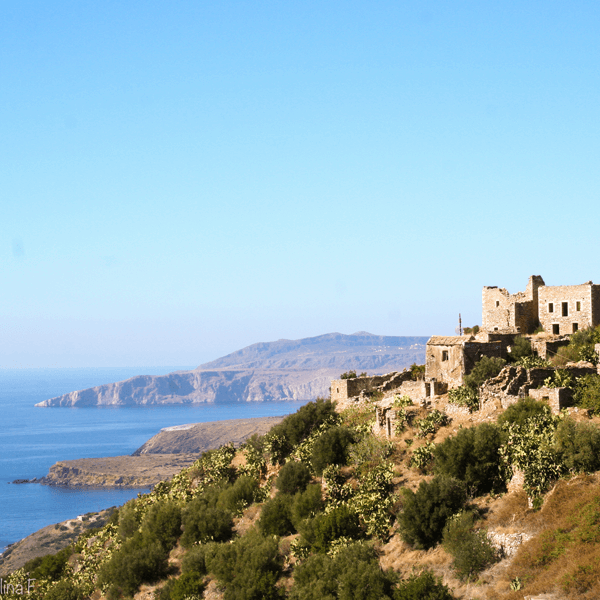
(Polina F/Flickr)
Patrick Leigh Fermor may have walked from Holland to Istanbul, but he finally put down roots on the Mani peninsula in the Peloponnese. Sitting on the terrace beyond his stone house, Paddy could work on the Time of Gifts trilogy while looking out over the sea. The blue-shuttered buildings on the compound are now part of the Benaki Museum, and after necessary repairs are completed, visitors will be able to stroll amid the gnarled olive trees down to the pebbled beach.
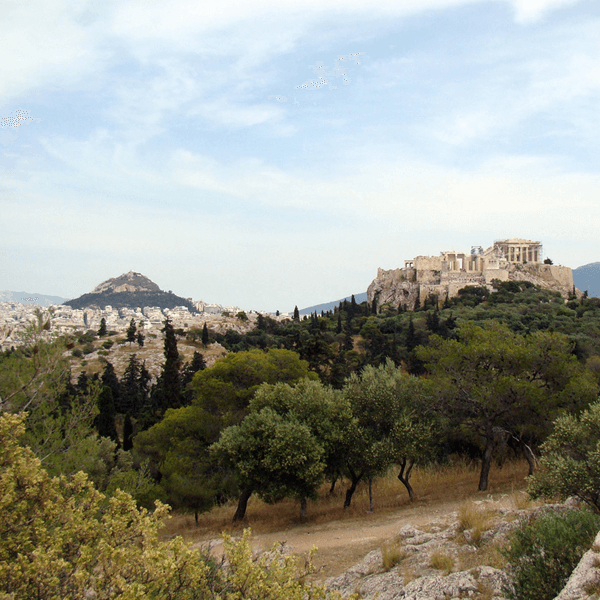
(F. Tronchin/Flickr)
Poet A. E. Stallings grew up in Decatur, Georgia, but for nearly 20 years she’s lived in Athens, finding inspiration in sun-warmed marble ruins and olives like “daylight packed in treasuries of oil.” This is, after all, a kind of reality. Check out her recent piece on our website, “Remembering Richard Wilbur,” and her forthcoming collection of poems titled Like.
Italy
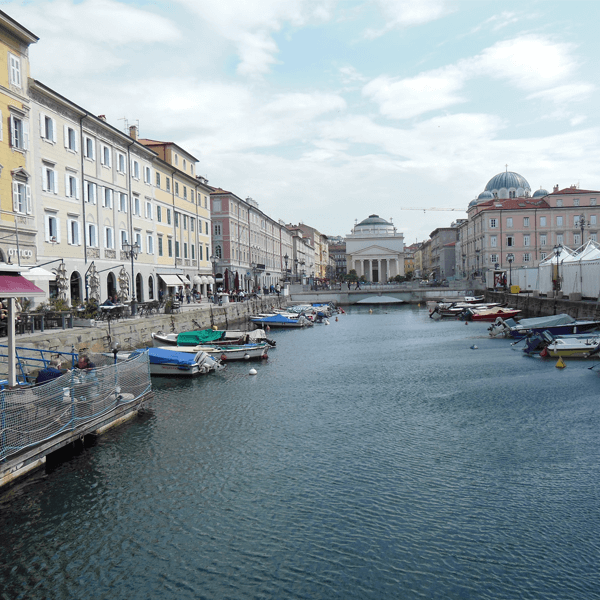
(Sergio & Gabriella/Flickr)
Trieste is a tricky city, “ethnically ambivalent, historically confused, [and] only intermittently prosperous,” as Jan Morris puts it. But for the eminent British author, who was stationed there as a soldier in 1946, the city holds kaleidoscopic wonders. Morris admits that her favorite piece of her own writing is the travelogue Trieste and the Meaning of Nowhere, written 50 years later, on a return visit.
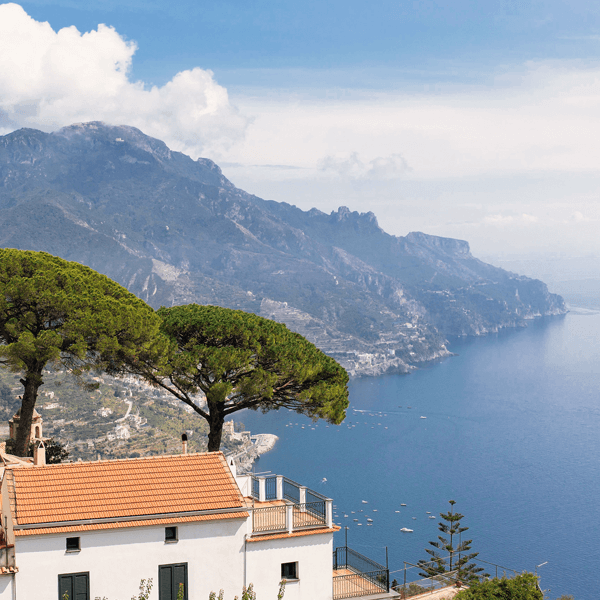
(NKCPhoto/Flickr)
Seven hundred kilometers south of the coastal town where Percy Shelley died in a sailing accident, lies the town of Ravello. Whereas the late Romantics reflected on events in England from their sunny Italian perch, Gore Vidal did the same about America. In 1972, he purchased La Rondinaia (Swallow’s Nest), a multistory house that beetles 1,000 feet above the Tyrrhenian Sea. From his gardens in the sky, he could entertain celebrity authors and friends, and craft his historical novels and inimitably caustic commentaries, such as his collection United States: Essays 1953 to 1992.
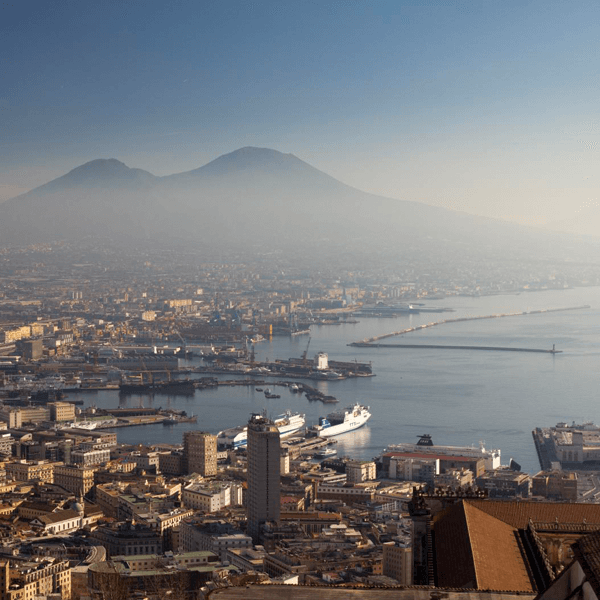
(Royal Olive/Flickr)
Shirley Hazzard’s love affair with Italy did not begin in Tuscany, or in Rome, or high up in the Dolomites. She fell in love with Naples, the city no tourist seemed keen on visiting in the 1950s, when she started working there for the United Nations. Transitioning from outsider to local takes diligence, though. Her writing table, for example, faced a blank wall, because “the sights of Siren Land are no aid to concentration.” The Ancient Shore, written with her husband, Francis Steegmuller, describes their many years on the Gulf of Naples, and her memoir Greene on Capri recounts a decades-long friendship she maintained with Graham Greene.
France
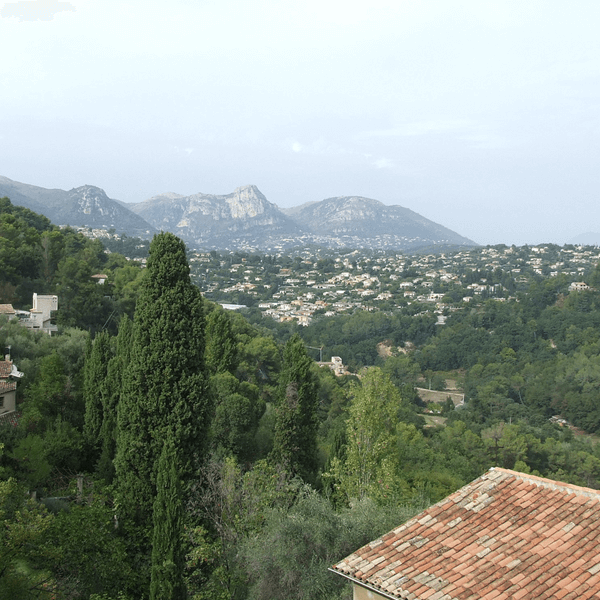
(Britrob/Flickr)
Neatly tucked between Cannes and Nice in the medieval village of Saint-Paul-de-Vence is an old stone farmhouse. Soon it will be developed into luxury apartments, a damnatio memoriae to what it once was: the home of James Baldwin. For the last 17 years of his life, he penned works such as If Beale Street Could Talk amid the thrum of cicadas and the laughter of visiting friends like Miles Davis, Josephine Baker, and Sidney Poitier.
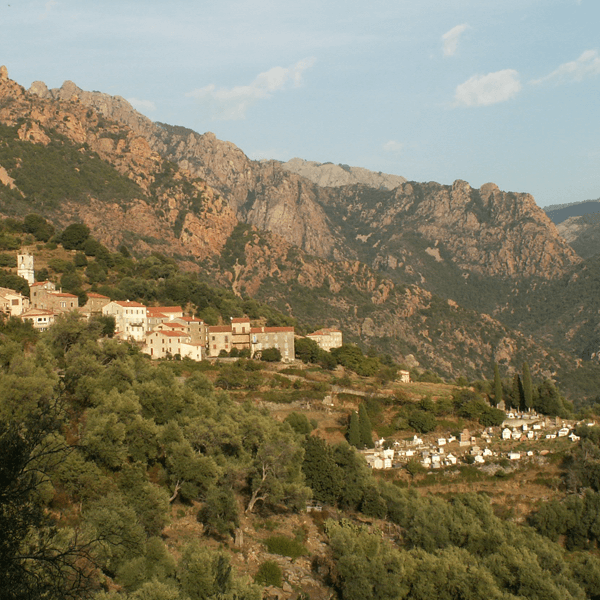
(Honza Soukup/Flickr)
David Sedaris and Peter Mayle have both managed to settle into comfortable French lives, but other writers have set off for more dangerous locales and ended up never leaving. In the late 1940s, Dorothy Carrington first visited Ajaccio, Corsica’s capital, on nothing more than a friend’s recommendation, but she would spend the next 50 years breathing in the smell of maquis—the evergreen shrubbery prickling the island—that permeated the air, “akin to incense, heady, almost, as an anaesthetic after rain.” Granite Island, her acclaimed portrait of Corsican life, serves as an ideal guide to any traveler intent on following her up mountains and down to rocky shores and clear blue water.
Spain
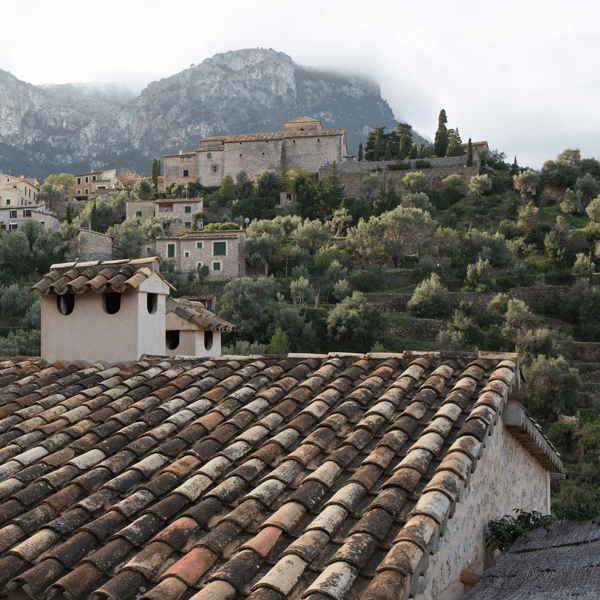
(Raffi Youredjian/Flickr)
On the advice of Gertrude Stein, Robert Graves rented a house in Deià, Majorca, in 1929. After penning Good-bye to All That, the Great War poet built the stone house he would raise his children in—except for a spell during the Spanish Civil War—and where he would write I, Claudius. Ca N’Alluny (The Faraway House) is now open to the public, and his gravesite can be found just down the road, bearing the epitaph: “Robert Graves, Poeta.”
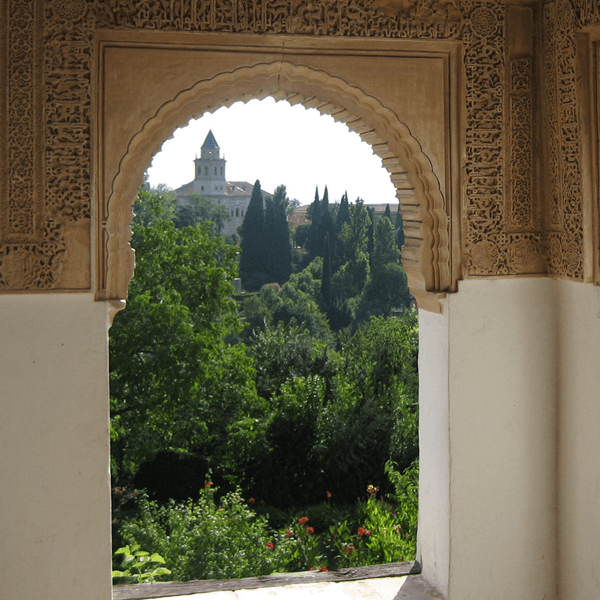
(brieanddylan/Flickr)
Washington Irving, America’s “first man of letters,” spent his later years writing from Sunnyside, his home on the Hudson River, but as a younger man he soaked up the sun in southern Spain. After a stint in England, where he wrote “Rip Van Winkle” and “The Legend of Sleepy Hollow,” Irving spent nearly a decade on the Iberian Peninsula. There, among the orange trees and cool stone terraces of Granada’s Moorish palace, he was inspired to begin Tales of the Alhambra.
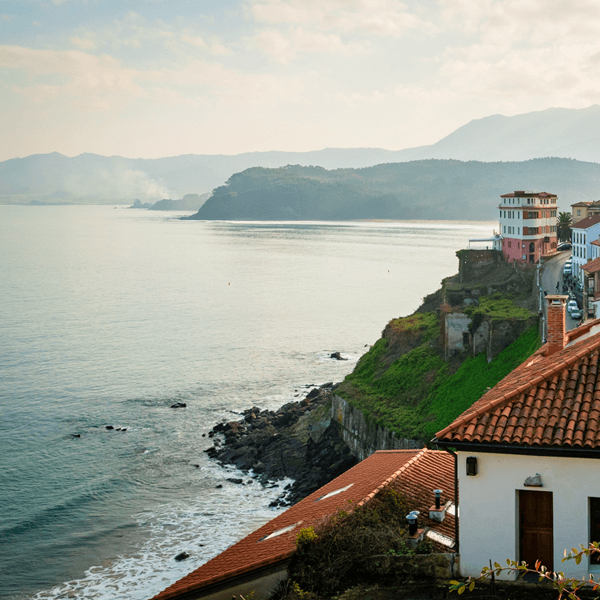
(Rodrigo Suarez/Flickr)
Clellan Coe does not live on the Mediterranean side of Spain. She writes from Asturias, the region way up north that faces the Atlantic ocean’s pounding waves. It’s windy and mountainous, often brutally cold and rainy. But for an expat writer, the brooding terrain is perfect for reflecting on small wonders and moments of peace. So yes, we snuck in Coe even though she falls outside the chaparral boundaries, but regardless, her essay in our Winter 2018 issue, “Against Wind and Tide,” is bound to leave you feeling warm and uplifted.
Morocco
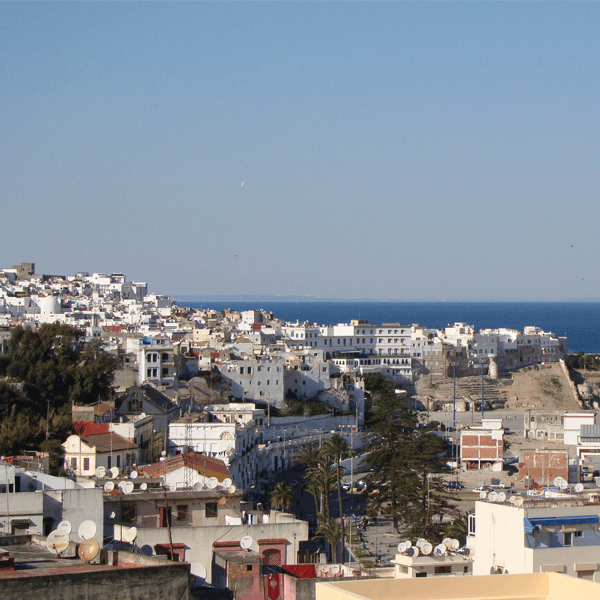
(Brandon Prince/Flickr)
Gertrude Stein might as well have been a travel agent considering that not only did she tip off Robert Graves to Majorca, but she also recommended Morocco to Paul Bowles—“The place you should go is Tangier. Alice and I’ve spent three summers there, and it’s fine.” Looking from the hillside streets down across the Strait of Gibraltar, Bowles wrote The Sheltering Sky. A long way from his native New York, Bowles created an entire Moroccan oeuvre of novels, short stories, musical compositions, and translations over the next 50 years.
Egypt
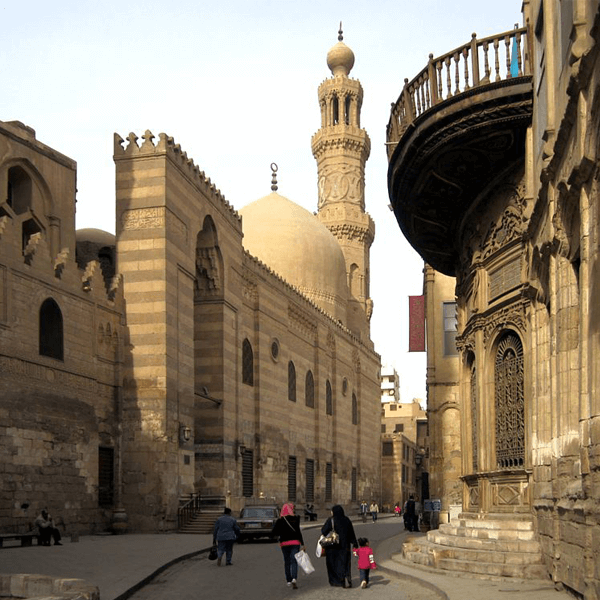
(David Stanley/Flickr)
Mona Eltahawy was physically and sexually assaulted by riot police while reporting on the 2011 Egyptian revolution. In response, she wrote the viral sensation “Why Do They Hate Us?” that she expanded into her book Headscarves and Hymens, a chronicle of women’s rights in the Middle East. Eltahawy was born in Egypt and raised in Scotland and Saudi Arabia; she returned to Cairo in 2013 not for the warm climate or visits to the pyramids but to fearlessly report on human rights abuses.
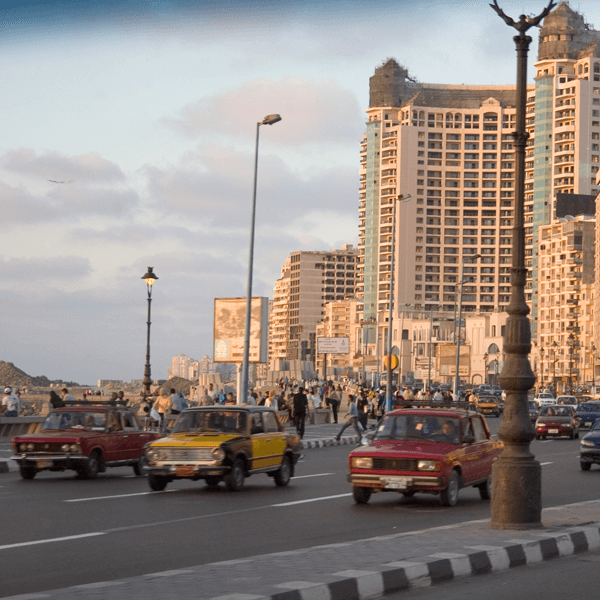
(Christopher Rose/Flickr)
Translatio studii is the transfer of knowledge from East to West, following the sun from the Mediterranean outward to France, England, and beyond. André Aciman made a similar trajectory, spending his childhood in Alexandria but moving to Italy and then New York following President Gamal Abdel Nasser’s anti-Semitic regime. Out of Egypt, his 1994 memoir, paints a very different picture than Lawrence Durrell’s Alexandria Quartet—this is the story of growing up in an eccentric, financially vibrant family, one which must soon break apart, leaving Aciman “longing for a city [he] never knew [he] loved.”
Lebanon
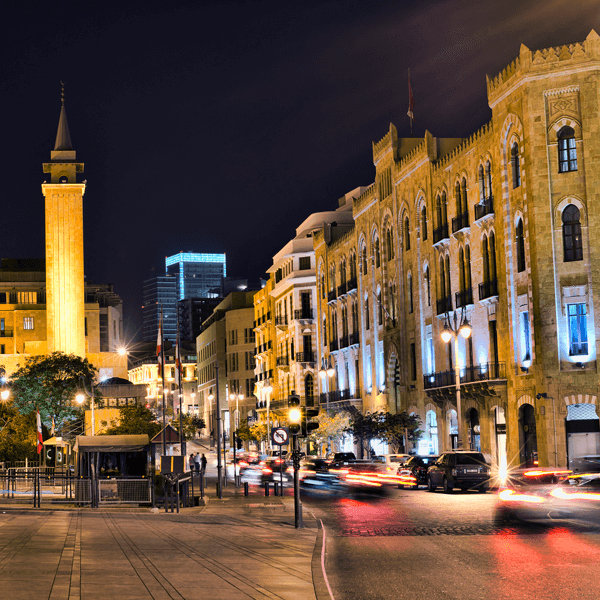
(Ahmad Moussaoui/Flickr)
Mathematician, engineer, businessman, painter, and then, finally, writer. Jordan, Kuwait, Lebanon, England, California, and then back to Beirut—Rabih Alameddine has not followed a linear path. His writing, too, is protean: The Hakawati is framed through folk tales; I, The Divine is a novel in first chapters; An Unnecessary Woman is about Aaliya, a 72-year-old reclusive translator who dyes her hair blue and owns an AK-47. “Beirut is the Elizabeth Taylor of cities,” she declares of her hometown: “insane, beautiful, tacky, falling apart, aging, and forever drama laden.”
Turkey
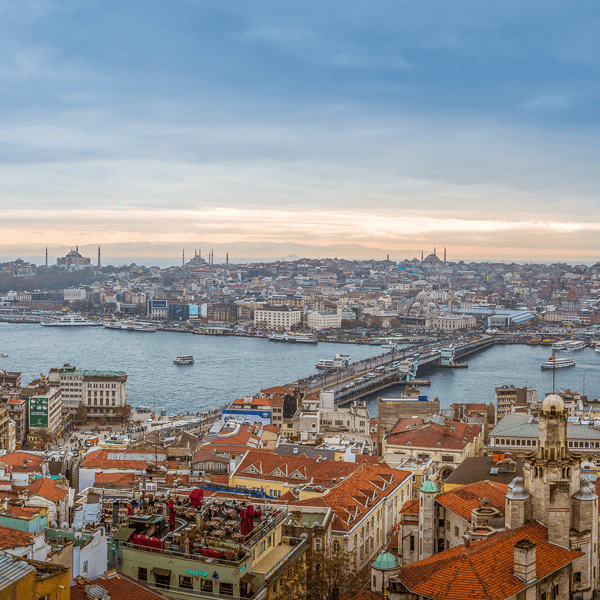
(Juraj Patekar/Flickr)
Author and free speech champion Orhan Pamuk grew up in Istanbul, lived briefly in New York City, and then moved back to Turkey, where he writes from an apartment overlooking the Bosphorus and the Old City. His novels juggle questions of alienation and identity, just as his memoir, Istanbul: Memories and the City, straddles a culture at once Eastern and Western. In 2006, he was awarded the Nobel Prize in Literature; in his lecture, he expressed that “what literature needs most to tell and investigate today are humanity’s basic fears: the fear of being left outside, and the fear of counting for nothing, and the feelings of worthlessness that come with such fears.”
—Charlotte Salley

